Description
ABSTRACT
Legislative Initiatives for Enhancing E-Commerce in Nigeria
Ibrahim Shehu*
With the world becoming a global village, Nigeria has no option than to join the revolution of electronic transaction by providing adequate legal and regulatory framework for enhancing e-commerce. The paper examines the current regulatory regime underpinning e-commerce in Nigeria and the on-going legislative efforts to provide a robust environment for e-commerce to ensure economic development.
INTRODUCTION
Electronic commerce, otherwise called e-commerce, consists of buying and selling of products or services over electronic systems such as the internet and other computer networks.1 E-commerce in Nigeria is steadily growing because of the vast improvement in telecommunication services. The adoption of e-commerce results in easier and more flexible interaction between business entities and customers within and outside the country. With the increasing use of electronic means of communication and information transfer, many businesses and individuals have become used to the speed and efficiency of electronic technology and have reorganised their operations to take advantage of the benefits derived therefrom.
The most pervasive manifestation of e-commerce in Nigeria today includes e-banking, mobile banking, Automated Teller Machine (ATM), Web Merchants, Pre-paid Package (e.g. DSTV), Payment Gateway Providers (e.g. Interswitch, eTranzact).2 According to experts, despite the recent volatility in oil prices globally with its attendant significant drop in government revenue for Nigeria, e-commerce (with Yudala, Jumia, Konga, Kaymu, and Dealdey being currently the key players in the Industry) is expected to achieve a 25% growth in 2016, while the quantum of trade in the sector is estimated to reach N2.8 Trillion by 2018.3
This paper examines primarily the current regulatory regime underpinning e-commerce in Nigeria and the on-going legislative efforts to provide a robust environment for e-commerce. The paper is divided into four parts. Part 1 discusses the existing laws impacting on e-commerce in Nigeria, Part 2 deals with evidential issues in e-commerce, Part 3 discusses bills initiated in the National Assembly to deal with certain aspects of e-commerce while Part 4 is the Conclusion.
CURRENT REGULATORY FRAMEWORK FOR E-COMMERCE IN NIGERIA
While the adoption of e-commerce has been overwhelming in Nigeria, our laws are antiquated and have not matched the enthusiasm of Nigerians. Apart from a subsidiary legislation, the Central Bank of Nigeria’s Approved Guidelines on Operations of Electronic Payment Channels in Nigeria,4there is no substantive legislation in Nigeria primarily dealing with e-commerce or its numerous variants. The legislations that impacts, however tangentially, on e-commerce are listed hereunder.
* LL.B, LL.M, BL. Lecturer, Faculty of Law, Usmanu Danfodiyo University, Sokoto
- <http://searchcio.techtarget.com/definition/e-commerce> accessed 24 October 2016
- Anthony I. SAN, ‘Legal and institutional framework for e-commerce in Nigeria’ accessed 24 October 2016
- Ozioma Ubabukoh, ‘E-Commerce remains competitive despite naira slump’ Punch Newspaper (Nigeria, 29 February 2016) 53 accessed 24 October 2016
- Central Bank of Nigeria, ‘Guidelines on Operations of Electronic Payment Channels in Nigeria’ accessed 24 October 2016

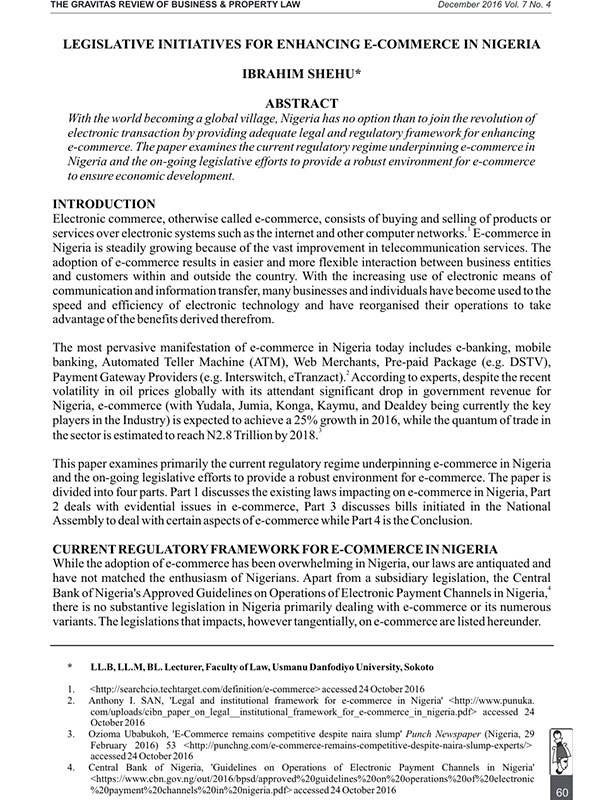
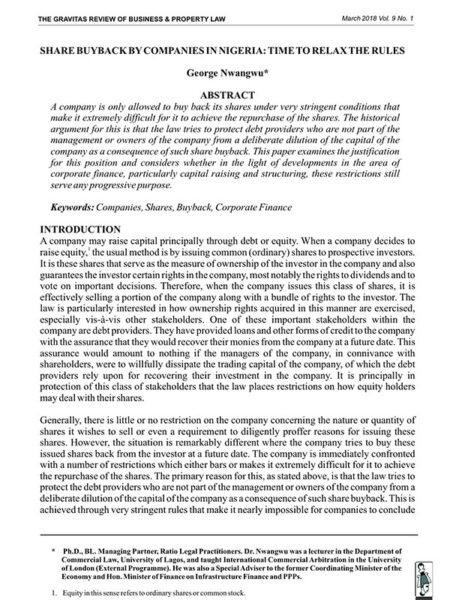
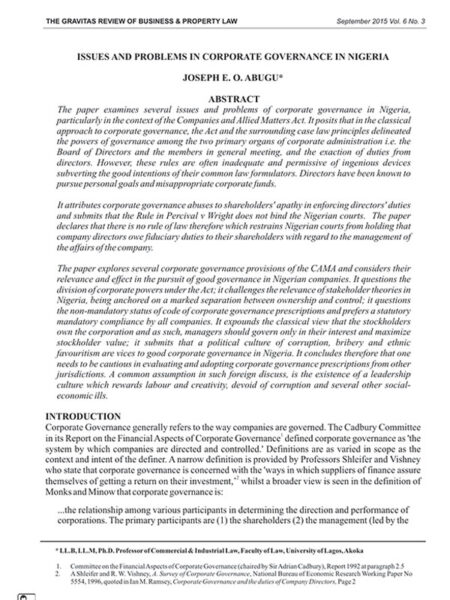
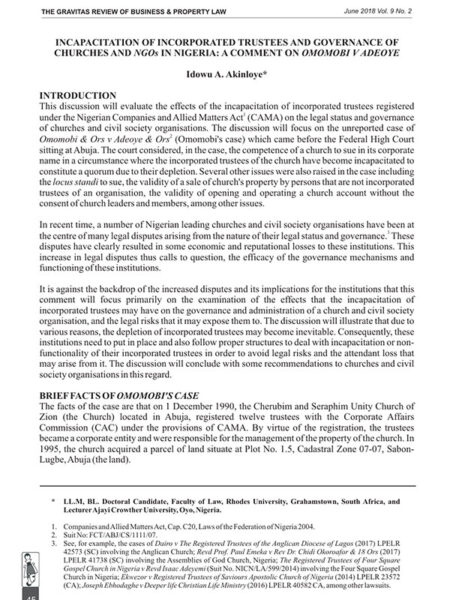
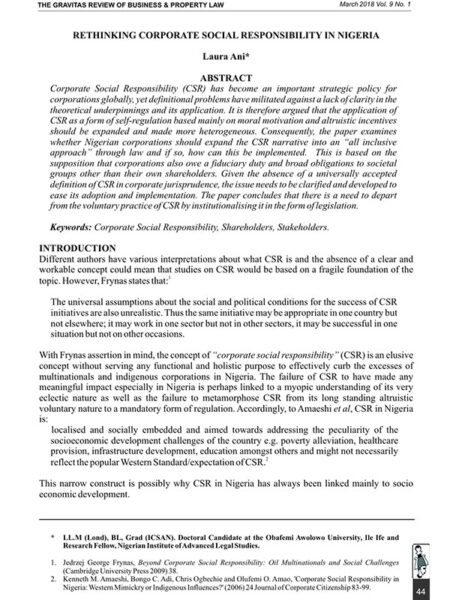


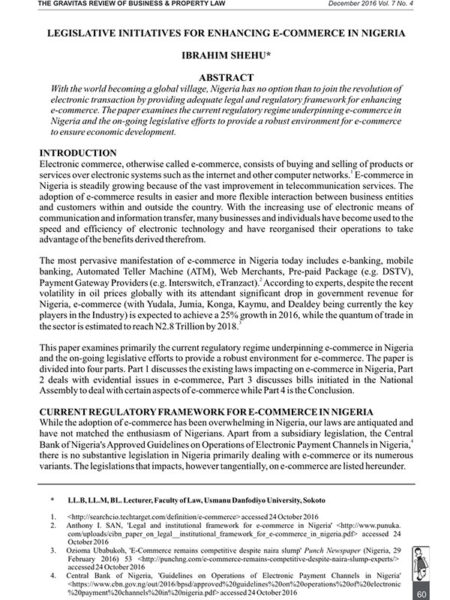
Reviews
There are no reviews yet.